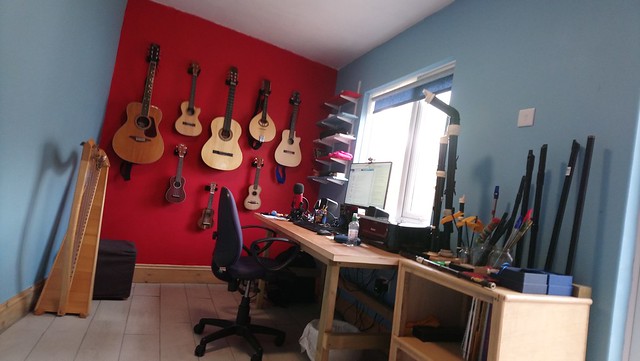What links the words desk, dais, disc, disco, dish and discus?
The answer is, they share the same roots: the Latin word discus (a discus, quoit, dish-shaped object, disc of a sundial), but arrived in English via different routes [source].
Desk comes from the Middle English deske (a reading desk or lecturn), from the Medieval Latin desca, from the Latin discus [source].
Dais (a raised platform in a room for a high table, a seat of honour, a throne, or other dignified occupancy) comes from the Middle English deis (podium, dais, high table), from the Anglo-Norman deis (dais, high seat/table, table of honour), from the Old French deis/dois, from the Latin discum, the accusative singular of discus [source].
Disc (a thin, flat, circular plate or similar object; a gramophone record) comes from the French disque (disc, discus, record, disk), from the Latin discus [source].
Disco, is an abbreviation of discoteque, which was borrowed from the French discothèque (discotheque, nightclub), from disque (disc, record) and bibliothèque, (library). It originally it meant “a library of discs/records”. Disque comes from the Latin discus [source].
Dish comes from the Middle English disch (dish, plate, bowl, discus), from the Old English disċ (plate, dish), from the Proto-West Germanic *disk (dish) from the Latin discus [source].
Discus comes directly from the Latin discus, from the Ancient Greek δίσκος (dískos – disc, dish, round mirror), the origins of which are uncertain [source].
Disk is used interchangeably with disc, and means more or less the same things. However, it comes straight from the Ancient Greek δίσκος [source].

